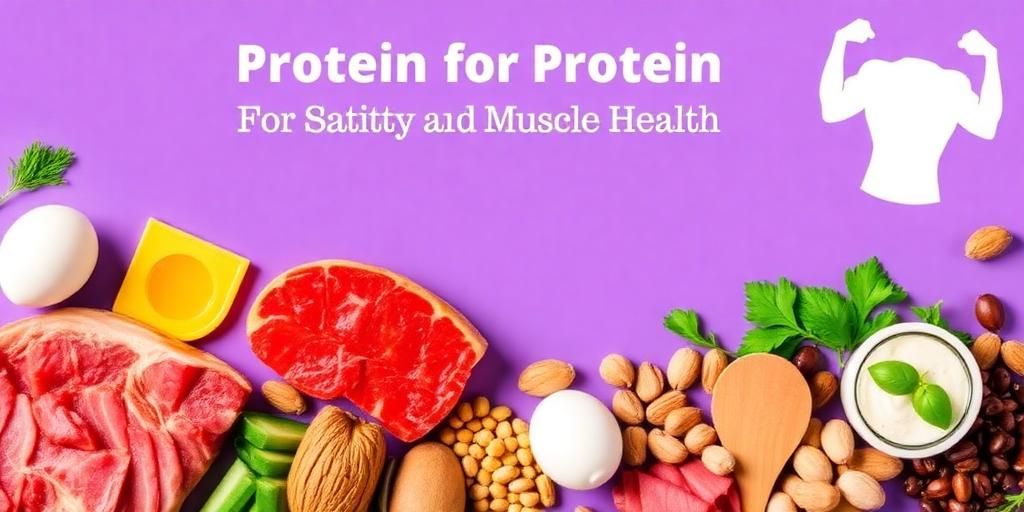The Importance of Protein for Satiety and Muscle Health
Protein is an essential macronutrient that plays a crucial role in various bodily functions. It is well-known for its importance in muscle building and repair, but protein also significantly impacts satiety, or the feeling of fullness, which can be beneficial for weight management and overall health.
Protein and Satiety
One of the key benefits of protein is its ability to promote satiety. Studies have shown that protein is more satiating than carbohydrates or fats. This means that consuming protein-rich foods can help you feel fuller for longer, reducing the likelihood of overeating and aiding in weight control.
- Hormonal Regulation: Protein influences the release of satiety hormones like peptide YY (PYY) and cholecystokinin (CCK), which signal to the brain that you are full. At the same time, it can help reduce levels of the hunger hormone ghrelin.
- Slower Digestion: Protein takes longer to digest compared to carbs, which prolongs the feeling of fullness and helps stabilize blood sugar levels.
- Increased Thermogenesis: The body uses more energy to digest protein compared to carbs or fats, a process known as the thermic effect of food. This can contribute to a higher metabolic rate.
Protein and Muscle Health
Protein is the building block of muscle tissue. Adequate protein intake is essential for muscle growth, repair, and maintenance. Whether you are an athlete, an active individual, or simply looking to maintain your overall health, protein should be a priority.
- Muscle Building: During resistance training, muscle fibers experience microscopic damage. Protein provides the amino acids needed to repair and rebuild these fibers, leading to muscle hypertrophy (growth).
- Muscle Repair: Protein is crucial for repairing muscle tissue after exercise or injury. Consuming protein post-workout can help reduce muscle soreness and speed up recovery.
- Preserving Muscle Mass: As we age, we naturally lose muscle mass, a condition known as sarcopenia. Adequate protein intake, combined with regular exercise, can help preserve muscle mass and maintain strength and function.
Sources of Protein
To reap the benefits of protein, it's important to include a variety of protein-rich foods in your diet. Here are some excellent sources:
- Animal Sources: Meat (beef, poultry, pork), fish, eggs, and dairy products are complete proteins, meaning they contain all nine essential amino acids.
- Plant Sources: Legumes (beans, lentils), nuts, seeds, tofu, and tempeh are good sources of protein for vegetarians and vegans. Combining different plant-based proteins can ensure you get all essential amino acids.
How Much Protein Do You Need?
The recommended daily allowance (RDA) for protein is 0.8 grams per kilogram of body weight. However, individual protein needs can vary based on factors like age, activity level, and overall health goals. Athletes, for example, may require 1.2 to 1.7 grams of protein per kilogram of body weight to support muscle growth and repair.
Conclusion
Incorporating sufficient protein into your diet is vital for both satiety and muscle health. By choosing a variety of protein sources and meeting your daily requirements, you can support weight management, muscle growth, and overall well-being. Whether you aim to lose weight, build muscle, or simply maintain a healthy lifestyle, protein is your ally.









